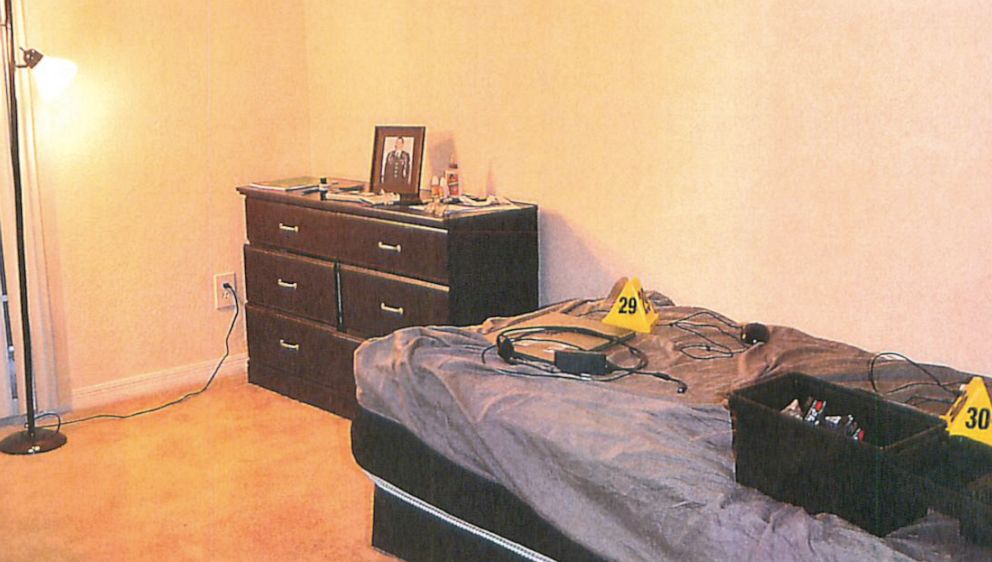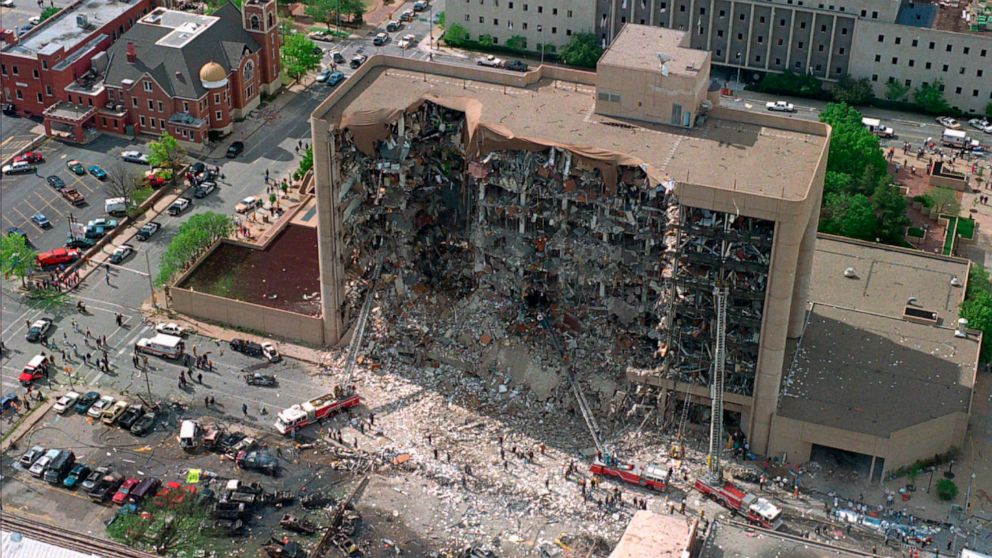Nation’s deadliest domestic terrorist inspiring new generation of hate-filled ‘monsters,’ FBI records show
A week before 36-year-old Timothy Wilson decided to blow up a Kansas City-area hospital that was already reeling from the COVID-19 pandemic, he considered attacking a slew of other targets instead, including several local mosques, a synagogue and an elementary school filled with Black children.
But, according to FBI records, before the avowed white supremacist from Raymore, Missouri, picked his final target in March, Wilson texted an associate with a particular question: “How did McVeigh do it?”
More than 25 years ago, Timothy McVeigh killed 168 people and injured nearly 700 others when he bombed the federal building in Oklahoma City, making him the most ruthless domestic terrorist in U.S. history.
Fortunately this time, Wilson's associate was actually an undercover FBI agent, and Wilson was stopped before he could carry out his bloody assault.
In the past three years, the FBI has arrested a few hundred Americans suspected of ties to domestic terrorism or violent white supremacy. And, as the nation confronts a surge in racially motivated violence, the FBI uncovered references to McVeigh in several of those investigations, according to an ABC News review of court records and government documents.
“That data point – in conjunction with more public displays of far-right extremist beliefs and a rise in hate crimes – suggests we are seeing a dramatic re-emergence of the [same] views that served as the motivation for the Oklahoma City attack,” warned John Cohen, an ABC News contributor who served as the Department of Homeland Security counterterrorism coordinator under the Obama administration.
Whether it was an apparent reverence for the killer himself or his lethal tactics, experts said the recent cases referencing McVeigh underscore how even decades-old forces can help fuel what the FBI has deemed one the most dangerous threats now facing the country.
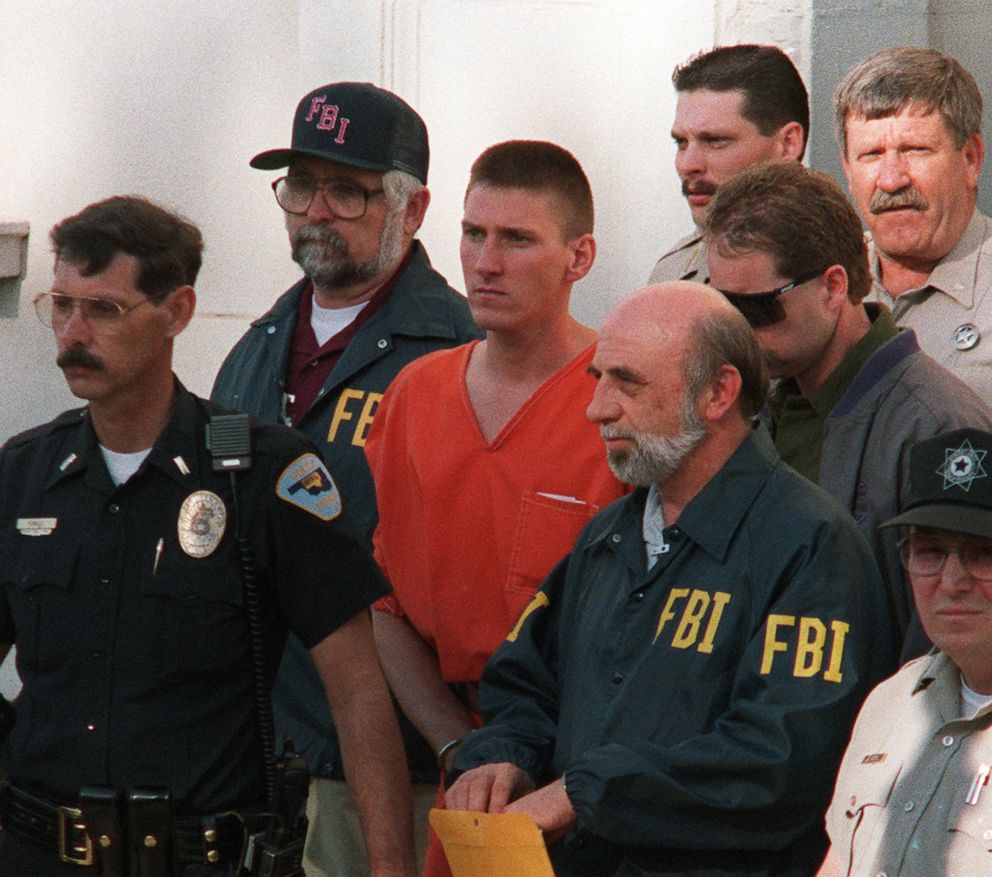
“A mass casualty event like the Oklahoma City bombing is … meant to provoke further violence," noted Kathleen Belew, a University of Chicago historian who has studied the development of modern white supremacy. "It’s meant to incite people, to awaken them to what people in this movement see as a state of emergency confronting the white race.”
The ABC News review of cases invoking McVeigh is part of “Homegrown Hate: The War Among Us,” an hour-long documentary premiering Tuesday on ABC News Live that examines white supremacy’s violent comeback.
A 'huge wake-up moment' in Charlottesville
The FBI has said McVeigh was motivated by a desire to topple the U.S. government, but in a media interview before he was executed in June 2001, McVeigh also described members of the white power movement as his “brothers in arms.”
That era “was kind of the last time” that the nation focused on right-wing extremism, because the 9/11 attacks just a few months later diverted attention overseas, according to Elizabeth Neumann, the recently-departed head of threat prevention and security policy at the U.S. Department of Homeland Security.
Radical forms of racism then largely remained “masked” for decades – until the presidential campaign of 2016 inflamed divisions inside America and hate crimes began to rise again, added Neumann, who has since spoken out against President Donald Trump since leaving his administration.
“For many of us,” she said, “a huge wakeup moment” came in August 2017, when a “Unite the Right” rally in Charlottesville, Virginia, attracted white supremacists from across the country, who chanted racist slogans and clashed with counter-protesters, leaving one woman dead.
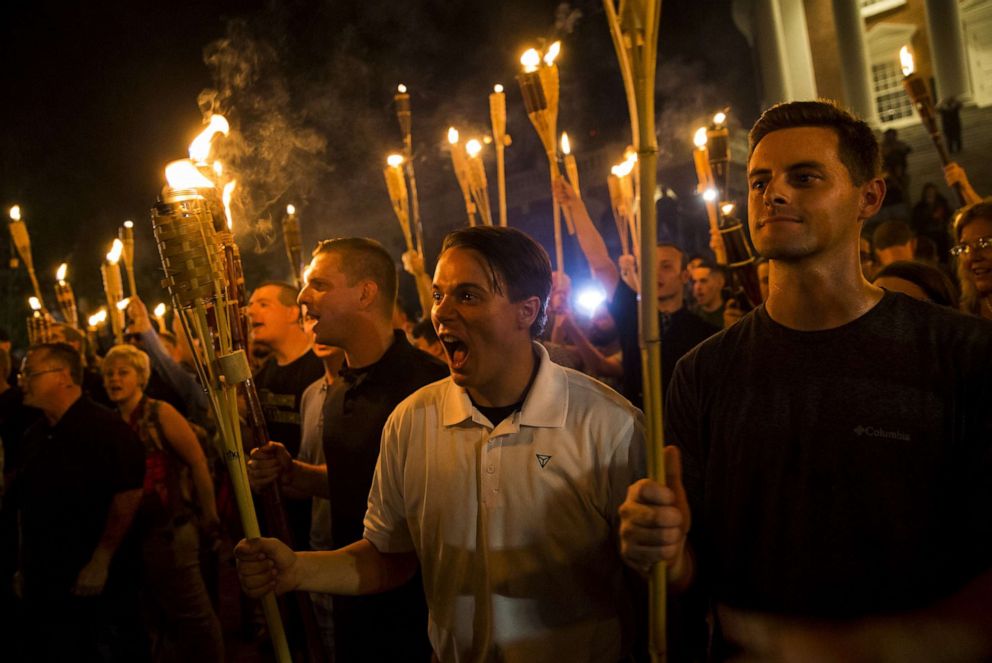
Kelvin Pierce, whose late father, Dr. William Luther Pierce, is considered one of the pioneers of the modern white power movement, believes the Charlottesville rally showed that white supremacy was “becoming mainstream” again and that "the monster has come out of hibernation," as further demonstrated just days later when Trump infamously claimed there were “very fine people” on both sides of the protests.
“I see [it all] as a pretty massive swing of the pendulum in the wrong direction,” Pierce said, insisting that rhetoric coming from Trump has only exacerbated the problem.
In fact, ABC News found that since Trump emerged as a presidential candidate in 2015, at least 25 people charged with hate-fueled assaults or threats cited Trump specifically in connection to their actions. ABC News could not find any such cases similarly tied to former presidents Barack Obama or George W. Bush.
“In the minds of those people who may be on the cusp, who may be considering a violent attack, they view the language used by mainstream elected officials as permission," Cohen said.
Trump has repeatedly denied that his rhetoric helps push anyone toward extremism, and after renewed pressure last week to publicly denounce hate groups, Trump said in a Fox News interview, "I condemn all white supremacists."
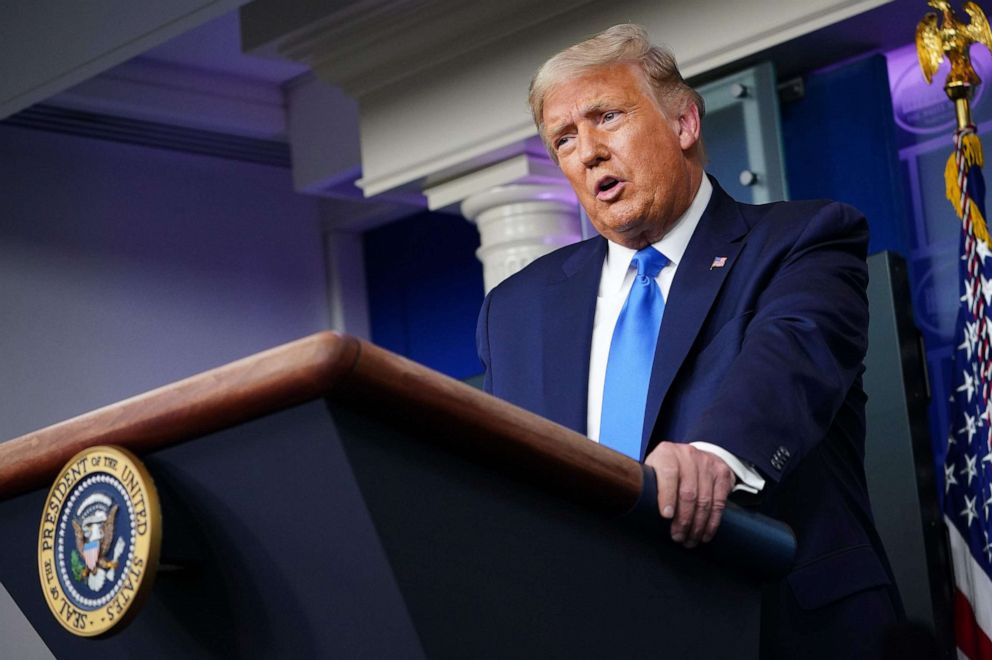
Nevertheless, as Pierce sees it, the racial divisions now spreading across America are exactly what McVeigh and like-minded extremists – poisoned by a toxic mix of racism and anti-government views – always hoped to inspire.
“[They believed] that their single action is going to be instrumental in starting a race war, or a civil war,” said Pierce, who once adhered to his father's ideologies and now speaks out against such hatred.
